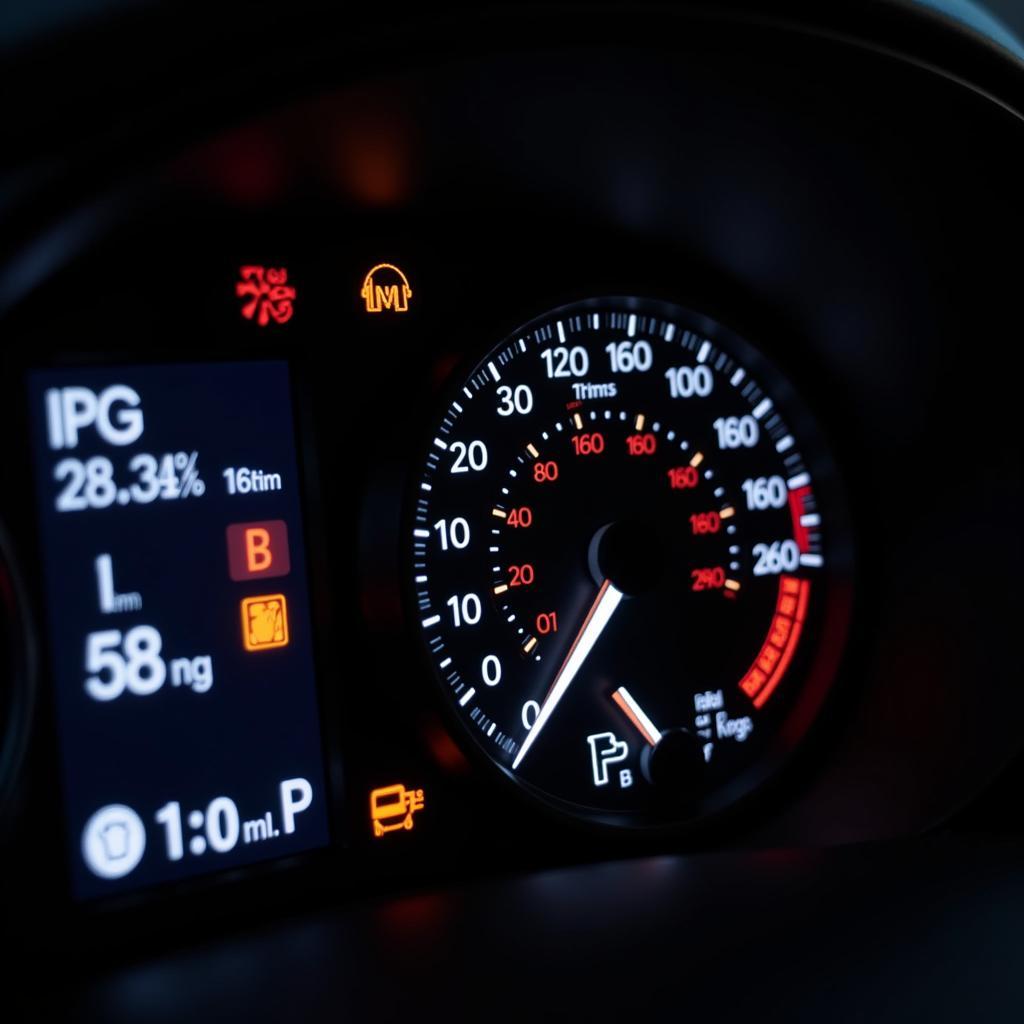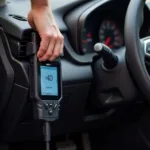Car electronic diagnostics is the process of using advanced equipment to identify and troubleshoot issues within a vehicle’s electronic systems. As cars have evolved into complex machines driven by sophisticated software and electronics, the need for effective car electronic diagnostics has become more crucial than ever.
Gone are the days of relying solely on mechanical know-how to fix a car. Today’s vehicles are equipped with an intricate network of Electronic Control Units (ECUs) that manage everything from engine performance and emissions to safety features and entertainment systems. When a problem arises, pinpointing the source requires specialized tools and expertise.
The Importance of Accurate Car Electronic Diagnostics
Accurate car electronic diagnostics are essential for a number of reasons:
-
Faster Repairs: By quickly identifying the root cause of a problem, mechanics can avoid time-consuming trial-and-error methods and perform targeted repairs. This translates to less time spent in the shop and lower overall repair costs for vehicle owners.
-
Improved Safety: Many vehicle safety systems, such as anti-lock brakes (ABS), electronic stability control (ESC), and airbags, are electronically controlled. Accurate diagnostics ensure these systems are functioning correctly, keeping drivers and passengers safe on the road.
-
Enhanced Performance: Car electronic diagnostics can identify issues that impact fuel efficiency, engine performance, and overall drivability. Addressing these problems can improve gas mileage, restore lost power, and optimize vehicle performance.
-
Emissions Control: Modern vehicles are equipped with sophisticated emissions control systems. Diagnostic tools can monitor these systems, ensuring they are operating within acceptable parameters and minimizing environmental impact.
How Car Electronic Diagnostics Work
At the heart of car electronic diagnostics is the On-Board Diagnostics (OBD) system. Mandated in most vehicles since 1996, the OBD system continuously monitors various vehicle components and systems for malfunctions.
When an issue is detected, the OBD system stores a Diagnostic Trouble Code (DTC) in its memory. These codes, often represented by a combination of letters and numbers, provide valuable clues about the nature and location of the problem.
Mechanics use specialized diagnostic scanners, also known as code readers, to access and interpret these DTCs. These scanners connect to the vehicle’s OBD-II port, typically located under the dashboard on the driver’s side.
Beyond retrieving DTCs, advanced diagnostic scanners can access live data streams from various sensors throughout the vehicle. This real-time information allows mechanics to monitor system performance, identify intermittent problems, and verify repair effectiveness.
Common Applications of Car Electronic Diagnostics
Car electronic diagnostics play a vital role in a wide range of automotive repair and maintenance tasks, including:
-
Engine Diagnostics: Identifying problems with engine sensors, fuel systems, ignition systems, and emission control components.
-
Transmission Diagnostics: Troubleshooting issues with automatic and manual transmissions, including shifting problems, clutch issues, and torque converter malfunctions.
-
Brake System Diagnostics: Diagnosing problems with ABS, traction control systems, and electronic brake distribution.
-
Airbag System Diagnostics: Verifying the functionality of airbag sensors, control modules, and deployment mechanisms.
-
Climate Control Diagnostics: Identifying issues with heating, ventilation, and air conditioning (HVAC) systems.
The Future of Car Electronic Diagnostics
As vehicles become increasingly reliant on complex electronic systems, the field of car electronic diagnostics is continuously evolving.
We can expect to see:
-
More sophisticated diagnostic tools: Scanners will become even more powerful, offering advanced features such as remote diagnostics, cloud-based data analysis, and augmented reality guidance for technicians.
-
Increased use of artificial intelligence: AI algorithms will be integrated into diagnostic software, enabling more accurate fault detection and predictive maintenance capabilities.
-
Over-the-air diagnostics: With the rise of connected vehicles, remote diagnostics will become more commonplace, allowing manufacturers and service centers to identify and address issues proactively.
Conclusion
Car electronic diagnostics are no longer a luxury but a necessity in the modern automotive landscape. Understanding the complexities of vehicle electronic systems and utilizing advanced diagnostic tools are crucial for accurate troubleshooting, efficient repairs, and ensuring optimal vehicle performance and safety.
As technology continues to advance, car electronic diagnostics will play an even more significant role in shaping the future of automotive repair and maintenance.
FAQ
1. How often should I have my car’s electronic systems checked?
It’s generally recommended to have your car’s electronic systems checked at least once a year or as part of your regular maintenance schedule.
2. Can I use a generic OBD-II scanner to diagnose problems with my car?
While generic scanners can read basic DTCs, they may not provide access to all vehicle systems or offer the advanced features of professional-grade scanners.
3. What should I do if my car’s check engine light comes on?
It’s important to have your vehicle diagnosed by a qualified mechanic as soon as possible to identify and address the underlying issue.
4. Can car electronic diagnostics detect problems with non-electronic components?
While electronic diagnostics primarily focus on electronic systems, they can sometimes provide indirect clues about mechanical problems that impact sensor readings or system performance.
5. How much do car electronic diagnostics typically cost?
The cost of diagnostics can vary depending on the complexity of the issue and the hourly rate of the repair shop.
Need Help With Your Vehicle’s Electronics?
Our team of expert technicians is standing by to assist you with all your car electronic diagnostic needs. Contact us today via WhatsApp at +1(641)206-8880 or email us at [email protected]. We’re available 24/7 to provide the support you need!


